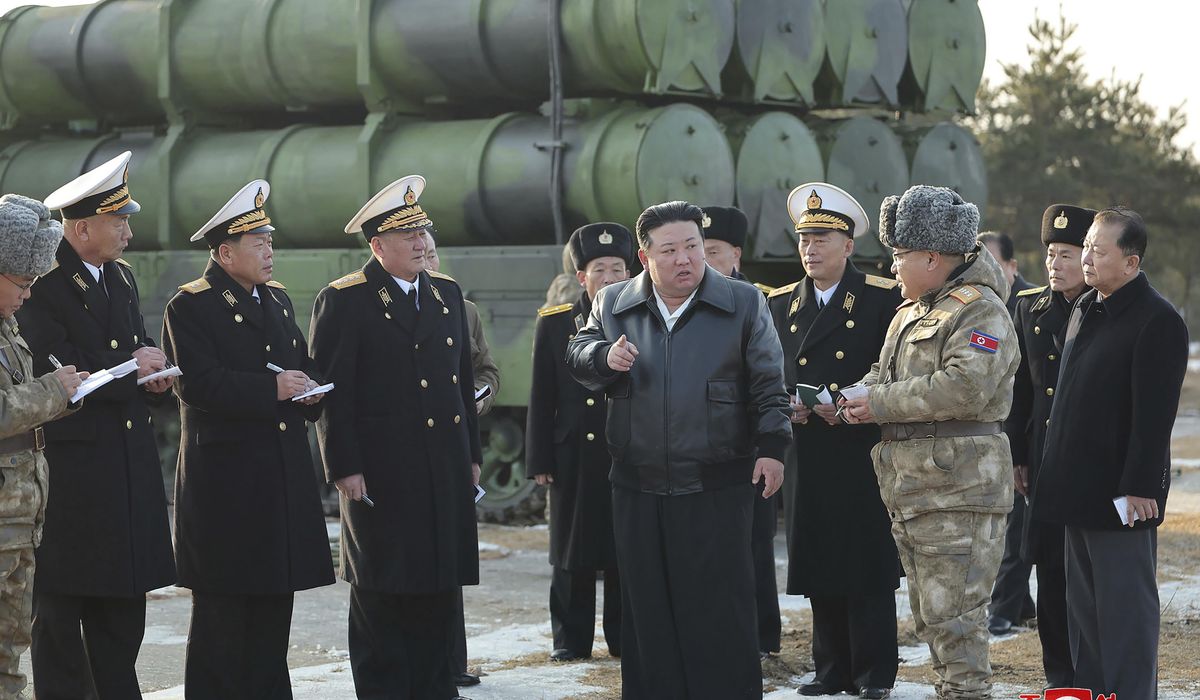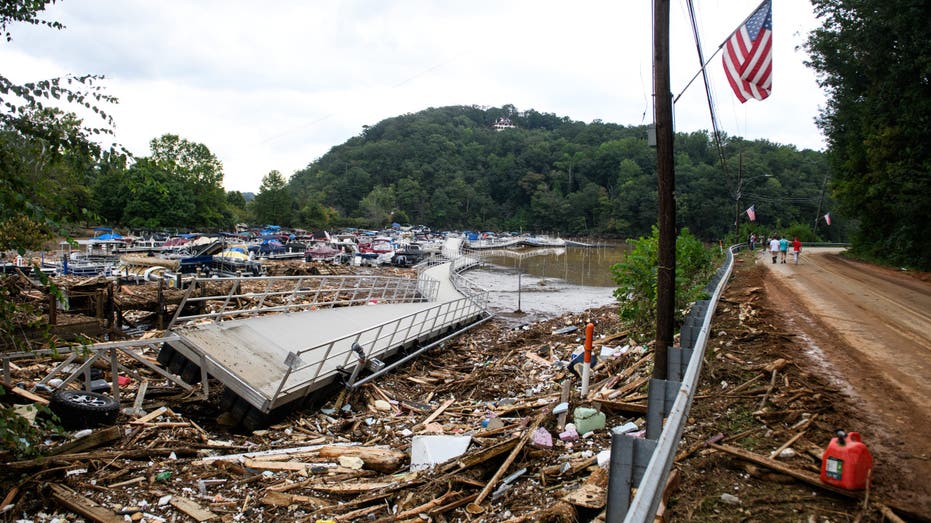
This article was originally published on Washington Times - World. You can read the original article HERE

SEOUL, South Korea — A growing divergence between the U.S. and South Korea on how to deal with the threat from North Korea will present knotty new challenges no matter who wins the hotly contested U.S. presidential race this fall.
Analysts say they see clear signs that the U.S. foreign policy establishment has accepted that North Korean leader Kim Jong-un will never give up his nuclear arsenal, but that is only giving fuel to rising voices in Seoul that South Korea should develop a nuclear capability of its own, rather than relying on Washington’s promises to protect it in a crisis.
With U.S.-North Korean diplomacy effectively on ice under President Biden, the U.S. election between Democratic Vice President Kamala Harris and Republican former President Donald Trump is being closely watched here, with regional analysts weighing the risks and opportunities the two candidates represent.
Mr. Trump has signaled a willingness to resume the extraordinary personal dialogue he began with Mr. Kim during his first term in office, but events on the peninsula and around the world the North Korean leader greater wriggle room than was the case when the two summited in 2018 and 2019.
“What concerns us most is the contrast in the foreign policies among the candidates,” said Han Suk-hee, president of the Institute for National Security Strategy, a state-run think tank affiliated with the National Intelligence Service. INSS analysts who recently visited Washington to take the political temperature briefed Seoul-based correspondents on their findings.
“Trump’s policies of ’Peace through Strength’ and ’America First’ stand in very sharp contrast to Harris’ policies of strengthening U.S. leadership with an internationalist approach,” Mr. Han noted.
Debating denuclearization
North Korea’s weapons of mass destruction and its defiance of all global pressures, issues that have bedeviled U.S. foreign policy for decades, are becoming ever more intractable, INSS experts said.
South Korean analysts say the Biden administration has offered no new thinking on North Korea, treating the nuclear-armed state with strategic indifference while it focused on hot wars in Ukraine and Gaza.
Amid the peninsula’s status quo, consensus opinion in South Korea has long been that no U.S. president can publicly accept a nuclear North Korea. To do so, the thinking goes, would not only undermine the global anti-proliferation regime, it would be an impossible sell to U.S. voters.
But that once-concrete opinion may finally be cracking: Both U.S. major parties have omitted the term “denuclearization” from their policy platforms on policy for the region.
The Democratic policy document speaks only of containing North Korea with the help of allies. After raising North Korea’s “substantial” nuclear arsenal at a rally, Mr. Trump told a political rally last month in Pennsylvania, “Getting along [with North Korea] is not a bad thing. It’s a good thing.”
Ha Kyoung-seok, an INSS analyst who met with members of both parties’ camps, said he detected a distinct shift in Washington’s concern over North Korea’s nuclear arsenal and the prospect that Mr. Kim would ever give it up in exchange for a broader peace deal.
“When it comes to denuclearization itself, their interest was not like before,” he said.
This apparent shift has jolted some in Seoul. Unification Minister Kim Yung-ho publicly expressed hopes that ending the North’s nuclear programs will appear in the agenda of November’s victor. But the absence of any talk in the parties’ campaign platforms on the subject signals a potentially pragmatic turn away from denuclearization to arms control.
Seoul and the nuclear option
If the new U.S. administration does acknowledge the Kim regime’s status as a nuclear power, the U.S. still has the benefit of a geographic safety valve: The vast Pacific separates it from North Korea, offering defensive space and early-warning time in case of an attack from Pyongyang.
South Korea enjoys no such protection.
“Chairman Kim has been developing nuclear warheads for a long time and has successfully made short-range missiles,” said a source who has closely studied North-South Korean security issues. “Those small-size, light-weight missiles are clearly targeting South Korea.”
Not only is North Korea diversifying nuclear delivery systems, relations between the hostile two Koreas have plummeted to new lows under conservative South Korean President Yoon Suk-yeol.
Concerns that a second Trump presidency could see a draw-down of U.S. troops in Korea are only adding to the nervousness here. A constant drip of reassuring statements from Washington about the solidity of the bilateral alliance has not stopped increasing talk about the need for South Korea to obtain its own sovereign nuclear deterrent.
Those opinions were summarized by the source, who spoke on background due to the sensitivity surrounding the matter.
“How far should we be patient about the world letting us have a nuclear capability in this country?” the source asked. “Even if we share nuclear capabilities with the U.S., the use decision will only be made by the U.S. president, not the [South] Korean president.”
Mr. Yoon has, himself, has raised the issue — without going into detail — of a domestic nuclear deterrent, and a discussion group of lawmakers was formed in the National Assembly this year to consider the idea. Opinion polls consistently show strong public support for the move.
An obvious way to cool peninsula tensions would be reigniting diplomacy. Mr. Trump has signaled a possible return to the summitry he pioneered with Mr. Kim in Singapore and Hanoi — precedent-smashing initiatives that were among the most eye-catching, though ultimately unsuccessful, policies of his presidency.
The North Korean leader, however, may be less receptive to diplomatic overtures in 2025.
“If Trump ties to have a summit with Kim Jong-un, we cannot be sure Kim Jong-un will respond,” said Kim Kwang-jin, a North Korean defector who works for the INSS. “Compared to 2019, when the Hanoi summit happened, the situation is different now.”
The North Korean leader himself made a forceful defense of Pyongyang’s nuclear programs in a Monday speech marking the 76th anniversary of the founding of the state, according to an account carried by the state-controlled news service KCNA.
Citing what he said were growing threats from the U.S. and its allies in the region, Mr. Kim said in his remarks, “The obvious conclusion is that the [North Korean] nuclear force and the posture capable of properly using it for ensuring the state’s right to security in any time should be more thoroughly perfected. … [North Korea] will steadily strengthen its nuclear force capable of fully coping with any threatening acts imposed by its nuclear-armed rival states and redouble its measures and efforts to make all the armed forces of the state — including the nuclear force — fully ready for combat. “
The key change? Reduced leverage, as Mr. Kim has cultivated closer ties with neighboring Russia.
“Sanctions imposed on North Korea are meaningless now,” Mr. Kim said. “Russia has created a big hole in sanctions, and the U.N. Security Council cannot reach a sanctions resolution again.”
With Russia cut off by the West after its invasion of Ukraine, Moscow has pivoted to Pyongyang. Following two summits between Mr. Kim and Russian President Vladimir Putin, relations between the capitals have hit heights not seen since the era of tight Cold War ties.
Russia’s economic lifeline has eased North Korea’s long-standing reliance upon China. The Kremlin is also offering the Kim regime diplomatic cover in the U.N. Security Council.
This means North Korea’s eagerness for eased U.S. sanctions in return for the abandonment of hard-won nuclear assets is reduced.
“North Korea does not need a lot for its survival,” Mr. Kim said. Russia’s current level of assistance, he added, is “enough for them, for now.”
This article was originally published by Washington Times - World. We only curate news from sources that align with the core values of our intended conservative audience. If you like the news you read here we encourage you to utilize the original sources for even more great news and opinions you can trust!










Comments